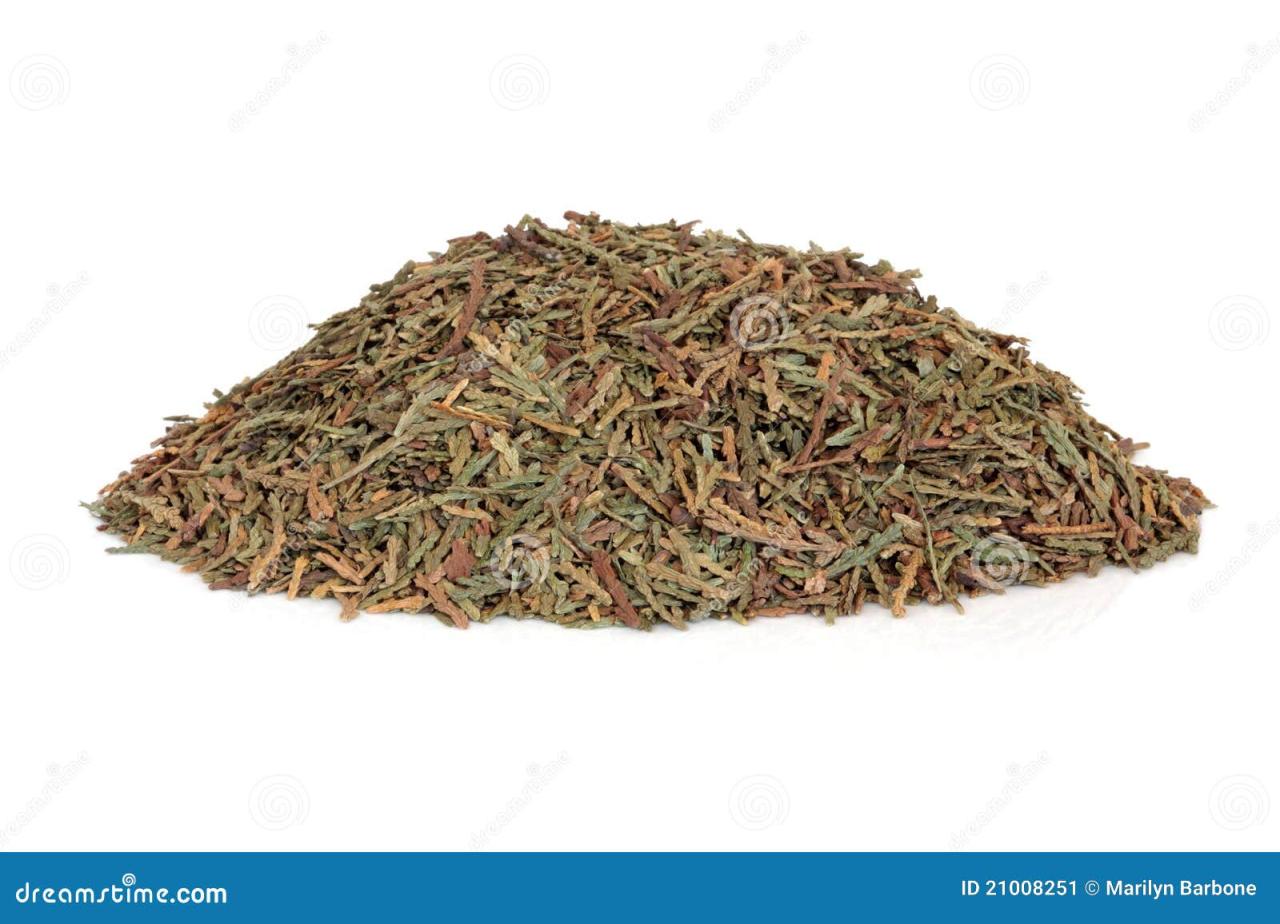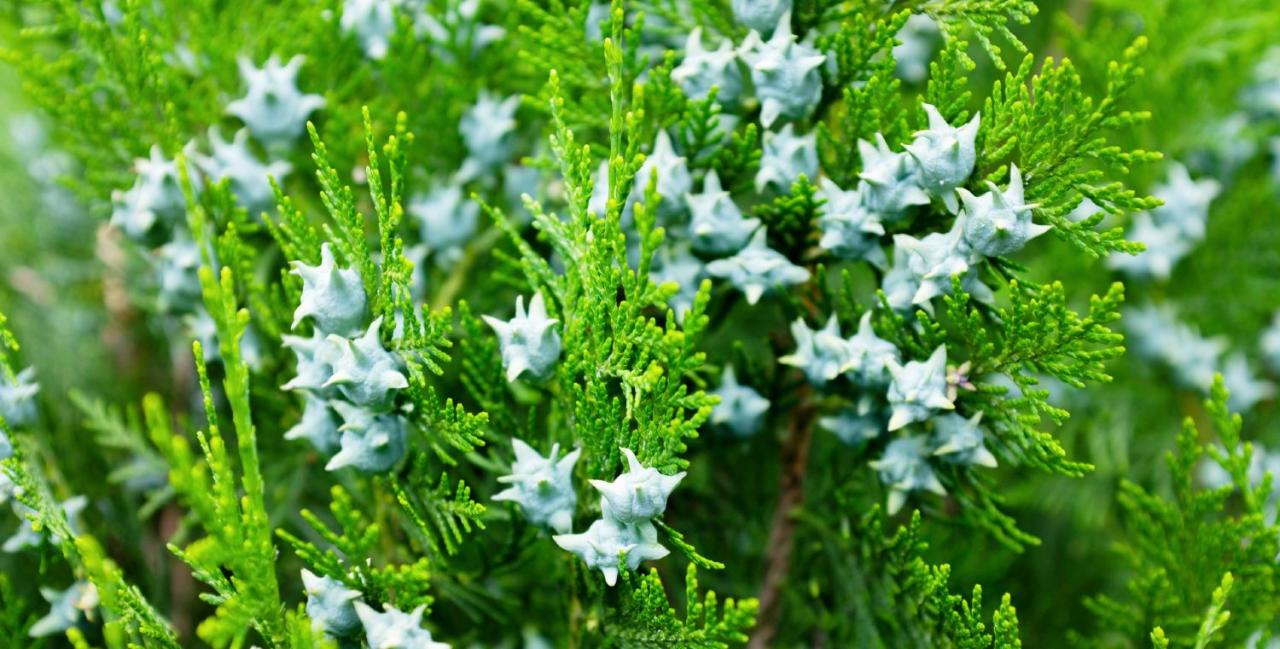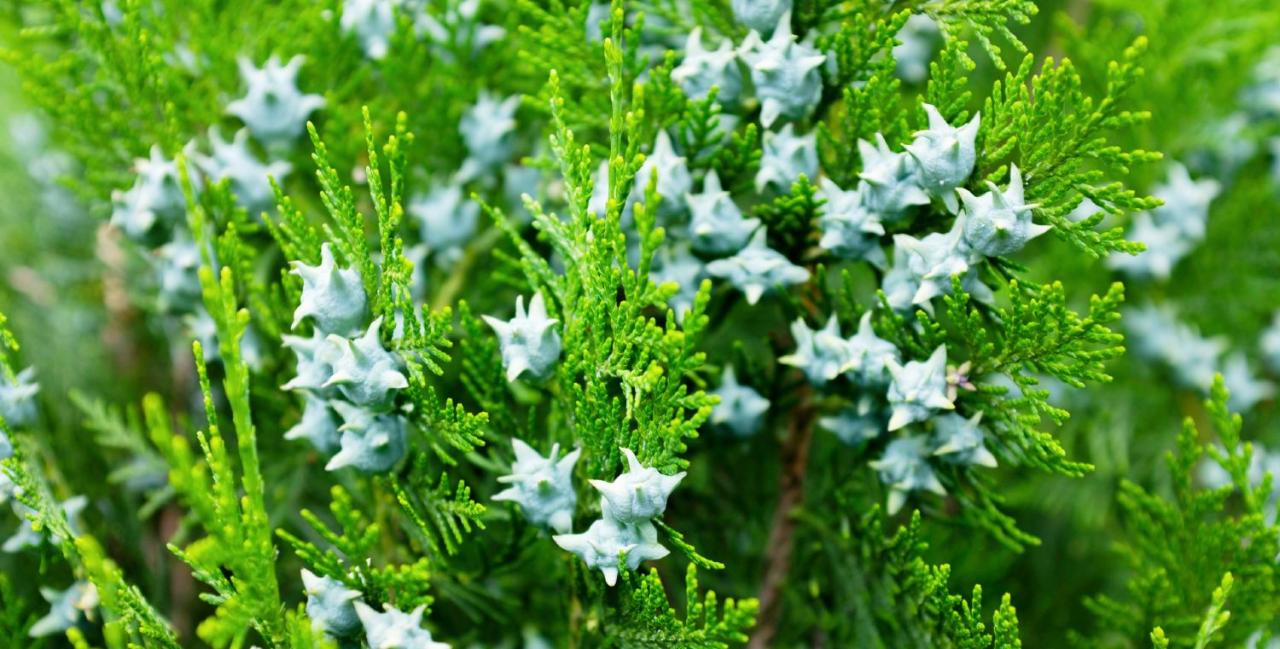Biota Herb: A Natural Way to Improve Your Life, a plant steeped in history and tradition, has captured the attention of those seeking natural wellness solutions. This versatile herb, known for its unique botanical properties, has been used for centuries in various cultures for its potential health benefits.
From traditional remedies to modern applications, Biota Herb offers a range of possibilities for improving overall well-being.
This comprehensive guide delves into the fascinating world of Biota Herb, exploring its history, benefits, uses, and precautions. We will uncover the science behind its potential health advantages, provide practical tips on incorporating it into your lifestyle, and address common questions and concerns.
Join us as we unlock the secrets of Biota Herb and discover its potential to enhance your life.
Introduction to Biota Herb

Biota Herb, also known as thuja, is a fascinating and versatile plant with a rich history and a wide range of traditional uses. Its unique properties have made it a valued medicinal herb and an integral part of various cultures around the world.
Botanical Name and Geographical Distribution
Biota Herb’s scientific name is
- Platycladus orientalis*, formerly known as
- Thuja orientalis*. It belongs to the cypress family (Cupressaceae) and is native to eastern Asia, specifically China, Korea, and Japan. The plant is a hardy evergreen conifer that can thrive in a variety of climates, making it adaptable to different growing conditions.
Traditional Uses of Biota Herb
Biota Herb has been used for centuries in traditional medicine systems, including Traditional Chinese Medicine (TCM) and Ayurveda. Its therapeutic properties are attributed to its essential oils, flavonoids, and other bioactive compounds.
Traditional Chinese Medicine
In TCM, Biota Herb is known as
-Bai Zuo*, which translates to “white left.” It is believed to possess properties that can
- Clear heat and detoxify the body.
- Promote urination and reduce swelling.
- Relieve pain and inflammation.
- Treat respiratory ailments like coughs and asthma.
Ayurveda
In Ayurveda, Biota Herb is called
-Arjun* and is used for its
- Antioxidant and anti-inflammatory effects.
- Ability to boost immunity and fight infections.
- Role in promoting healthy digestion and reducing bloating.
Other Traditional Uses
Beyond its medicinal applications, Biota Herb has also been used for:
- Aromatic purposes:Its leaves release a pleasant, slightly sweet aroma, making it popular for incense and perfumes.
- Woodworking:The durable wood of Biota Herb is often used for crafting furniture, sculptures, and other decorative items.
- Landscaping:Its attractive foliage and adaptability make it a popular choice for hedges, screens, and ornamental plantings.
Benefits of Biota Herb
Biota herb, scientifically known asPlatycladus orientalis*, has been used in traditional medicine for centuries due to its various potential health benefits. These benefits are attributed to the presence of active compounds within the herb, which exhibit a range of pharmacological properties.
Biota Herb offers a natural approach to enhancing well-being, and one way to bring a touch of nature indoors is by cultivating vibrant African Violets. Discover the secrets to successfully propagating these beautiful plants at home with our comprehensive guide, The Ultimate Hack to Propagating African Violets at Home , and enjoy the therapeutic benefits of nurturing life in your own space.
Biota Herb believes that a connection with nature can foster a sense of peace and harmony, and growing your own African Violets is a rewarding step in that journey.
Active Compounds in Biota Herb, Biota Herb: A Natural Way to Improve Your Life
Biota herb contains a variety of bioactive compounds, including essential oils, flavonoids, and tannins. These compounds contribute to the herb’s therapeutic properties.
- Essential Oils:Biota herb is rich in essential oils, particularly -α-pinene*, -β-pinene*, and -limonene*. These oils are known for their antimicrobial, anti-inflammatory, and analgesic properties.
- Flavonoids:Flavonoids, such as -quercetin* and -kaempferol*, are potent antioxidants found in Biota herb. These compounds protect cells from damage caused by free radicals, reducing oxidative stress.
- Tannins:Tannins are polyphenols that exhibit astringent and anti-inflammatory properties. They contribute to the herb’s ability to soothe irritated skin and mucous membranes.
Potential Health Benefits of Biota Herb
The active compounds in Biota herb have been associated with several potential health benefits, supported by scientific studies.
Biota Herb offers a range of natural remedies to enhance your well-being, and cultivating your own plants can be a rewarding part of that journey. If you’re looking to add vibrant blooms to your home, consider African violets, which can be propagated without seeds using techniques like leaf cuttings.
Learn more about these methods in this informative article, How to Grow African Violets Without Seeds: Propagation Techniques , and discover the joy of nurturing your own beautiful plants. These vibrant flowers can add a touch of nature’s beauty to your space, complementing the natural healing benefits of Biota Herb.
- Anti-Inflammatory Properties:Studies have shown that Biota herb extracts possess anti-inflammatory properties. The essential oils and flavonoids present in the herb inhibit the production of inflammatory mediators, reducing inflammation in various tissues.
- Antioxidant Properties:The flavonoids in Biota herb act as potent antioxidants, protecting cells from damage caused by free radicals. This antioxidant activity may contribute to reducing the risk of chronic diseases such as cancer and heart disease.
- Antimicrobial Properties:Biota herb essential oils have demonstrated antimicrobial activity against a range of bacteria and fungi. This property suggests potential applications in treating infections.
- Respiratory Health:Biota herb has been traditionally used to treat respiratory conditions such as coughs, bronchitis, and asthma. Its essential oils may help to open airways and relieve congestion.
- Skin Health:Biota herb extracts are often used in topical applications for their soothing and anti-inflammatory effects on the skin. They may help to reduce skin irritation, acne, and eczema.
Traditional Uses of Biota Herb
Biota herb has a long history of use in traditional medicine systems, particularly in Chinese medicine.
- Respiratory Health:In traditional Chinese medicine, Biota herb is used to treat respiratory conditions such as coughs, bronchitis, and asthma. It is believed to clear the lungs and relieve congestion.
- Skin Health:Biota herb is also used topically in traditional medicine to treat skin conditions such as eczema, psoriasis, and acne.
- Other Uses:Biota herb has been used traditionally to address a range of other health concerns, including headaches, dizziness, and urinary tract infections.
How to Use Biota Herb
Biota herb, also known as thuja, has a long history of use in traditional medicine. It can be used in a variety of ways, including as a tea, tincture, or essential oil.
Preparing and Using Biota Herb
Biota herb can be prepared in several ways, depending on the desired application.
- Tea: To make a tea, steep 1-2 teaspoons of dried biota herb in a cup of boiling water for 10-15 minutes. Strain the tea before drinking.
- Tincture: A tincture is a concentrated extract of the herb made by soaking the plant material in alcohol. Biota herb tinctures can be purchased online or at health food stores. The recommended dosage for biota herb tincture is 10-20 drops, taken three times daily.
- Essential Oil: Biota herb essential oil can be used in aromatherapy or topically. To use biota herb essential oil in aromatherapy, add a few drops to a diffuser. To use it topically, dilute the oil in a carrier oil, such as almond oil or jojoba oil, and apply it to the skin.
Recipes Using Biota Herb
Biota herb can be incorporated into a variety of recipes. Here are a few ideas:
- Biota Herb Tea: Combine 1 teaspoon of dried biota herb, 1 teaspoon of dried ginger, and 1/2 teaspoon of dried lemon balm. Steep in a cup of boiling water for 10-15 minutes. Strain the tea before drinking.
- Biota Herb Infused Honey: Combine 1/4 cup of dried biota herb with 1 cup of honey. Store in an airtight container in a cool, dark place for 2 weeks. Strain the honey before using.
- Biota Herb Soup: Add a tablespoon of dried biota herb to your favorite soup recipe.
Aromatherapy and Other Applications
Biota herb essential oil can be used in aromatherapy to promote relaxation, reduce stress, and improve sleep. It can also be used topically to relieve muscle aches and pains. Biota herb can also be used as a natural insecticide.
Precautions
Biota herb is generally considered safe for most people when used in moderation. However, it is important to note that biota herb can interact with certain medications. If you are pregnant, breastfeeding, or have any medical conditions, it is important to talk to your doctor before using biota herb.
Precautions and Side Effects: Biota Herb: A Natural Way To Improve Your Life
While Biota herb offers numerous health benefits, it’s crucial to be aware of potential side effects and precautions to ensure safe and effective use.
Like any herbal supplement, Biota herb can interact with certain medications or conditions. Therefore, consulting a healthcare professional before incorporating it into your regimen is highly recommended, especially if you have underlying health issues or are taking medications.
Potential Side Effects
Biota herb is generally considered safe for most individuals when used in moderate amounts. However, some potential side effects may occur, especially with prolonged use or high dosages.
- Gastrointestinal Issues:Some individuals may experience mild gastrointestinal discomfort, such as nausea, vomiting, or diarrhea, particularly when taking Biota herb in high doses or on an empty stomach.
- Allergic Reactions:Although rare, allergic reactions to Biota herb are possible. Symptoms may include skin rash, itching, swelling, and difficulty breathing. If you experience any allergic reaction, discontinue use immediately and seek medical attention.
- Interactions with Medications:Biota herb may interact with certain medications, such as blood thinners, anti-depressants, and medications for blood pressure or diabetes. Consult your doctor before using Biota herb if you are taking any medications.
Dosage and Safe Use
The appropriate dosage of Biota herb varies depending on individual factors such as age, health condition, and the specific purpose of use. It’s crucial to follow the recommended dosage guidelines provided by the manufacturer or consult with a healthcare professional for personalized advice.
Generally, starting with a lower dose and gradually increasing it as needed is advisable. It’s also essential to be mindful of the potential side effects and discontinue use if any adverse reactions occur.
Contraindications
Biota herb is not recommended for everyone. Certain individuals should avoid using it, including:
- Pregnant or Breastfeeding Women:Biota herb may have potential effects on pregnancy and breastfeeding, and its safety during these periods has not been established. It’s best to avoid using it during pregnancy or breastfeeding.
- Individuals with Liver or Kidney Disease:Biota herb may put additional strain on the liver and kidneys. If you have liver or kidney disease, it’s crucial to consult with your doctor before using Biota herb.
- Individuals with Autoimmune Disorders:Biota herb may potentially exacerbate autoimmune disorders. If you have an autoimmune disorder, it’s best to avoid using Biota herb.
- Individuals with a History of Allergies to Plants in the Cypress Family:Biota herb belongs to the Cypress family. If you have a history of allergies to plants in this family, you may be allergic to Biota herb. Consult with your doctor before using it.
Sourcing and Sustainability
Choosing the right Biota Herb is essential for reaping its full benefits. Ensuring its sustainable cultivation and responsible sourcing is vital for both your health and the environment.
Finding High-Quality Biota Herb
It’s crucial to source Biota Herb from reputable suppliers who prioritize quality and sustainability. Here are some tips:
- Look for organic certification:Organic Biota Herb is cultivated without synthetic pesticides or fertilizers, ensuring a purer and healthier product.
- Choose suppliers with ethical practices:Research the supplier’s harvesting methods, labor practices, and environmental impact.
- Consider buying locally:Supporting local farmers or herb suppliers helps to reduce transportation costs and environmental impact.
Sustainable Cultivation and Harvesting
Sustainable Biota Herb cultivation practices are vital for preserving this valuable resource. Here are some key aspects:
- Rotation and crop diversity:Rotating Biota Herb with other crops helps to prevent soil depletion and pest buildup.
- Organic farming methods:Using natural fertilizers and pest control methods minimizes environmental impact.
- Responsible harvesting:Harvesting Biota Herb sustainably ensures that the plant can regenerate and thrive. This may involve leaving some plants to seed or harvesting only a portion of the plant.
Promoting Responsible Sourcing and Conservation
By making informed choices, you can contribute to the responsible sourcing and conservation of Biota Herb:
- Educate yourself:Learn about the importance of sustainable Biota Herb cultivation and the potential environmental impact of irresponsible practices.
- Support sustainable suppliers:Choose Biota Herb from suppliers who prioritize ethical and sustainable practices.
- Reduce your consumption:If you use Biota Herb frequently, consider reducing your consumption to minimize demand.
End of Discussion

As we conclude our exploration of Biota Herb, it becomes evident that this ancient remedy holds immense potential for promoting health and well-being. From its traditional uses to modern scientific discoveries, Biota Herb continues to fascinate and inspire. By understanding its properties, benefits, and precautions, you can make informed decisions about incorporating this powerful herb into your life.
Remember, always consult with a healthcare professional before using any new herbal remedies, especially if you have underlying health conditions or are taking medications.
User Queries
Is Biota Herb safe for everyone?
While Biota Herb is generally considered safe for most people, it’s important to consult with a healthcare professional before using it, especially if you are pregnant, breastfeeding, have underlying health conditions, or are taking medications. Certain individuals may experience mild side effects, such as digestive upset or allergic reactions.
Where can I find high-quality Biota Herb?
Look for reputable herbal suppliers who prioritize quality and sustainability. Choose organic, ethically sourced Biota Herb whenever possible. Avoid purchasing from unknown vendors or online marketplaces that may not have proper quality control measures in place.
